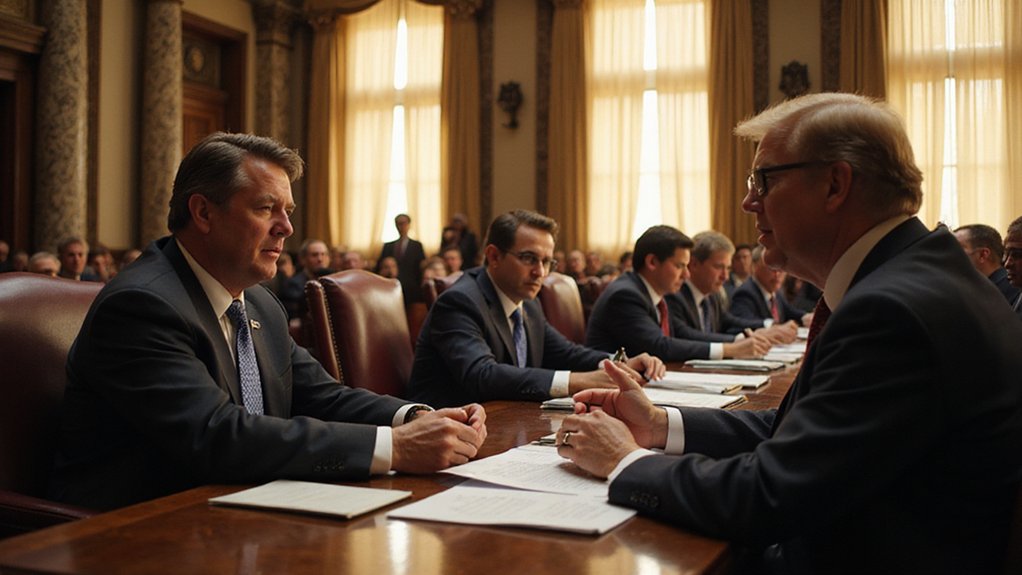Circle has applied to establish First National Digital Currency Bank, N.A., a federally regulated trust institution that would oversee USDC reserves under the watchful eye of the Office of the Comptroller of the Currency—a move that transforms what was once a patchwork of state licenses into a singular, cohesive regulatory framework.
The proposed bank would enhance the infrastructure supporting USDC, the world’s largest regulated payment stablecoin, while positioning Circle as a proactive leader in digital asset compliance rather than a perpetual regulatory laggard.
This strategic pivot arrives with impeccable timing, coinciding with the proposed GENIUS Act‘s passage through the Senate and its pending House consideration. Circle’s application demonstrates remarkable foresight (or perhaps shrewd calculation) in anticipating legislative mandates that would otherwise force such structural changes.
The trust charter effectively preempts future regulatory requirements while establishing institutional custody services that traditional finance has long demanded but crypto markets have struggled to provide reliably.
The operational implications extend beyond mere compliance theater. A national trust bank eliminates third-party risks that have historically plagued stablecoin operations, centralizing USDC reserve management under federal oversight.
This consolidation reduces the regulatory fragmentation that has created operational headaches and institutional skepticism about stablecoin infrastructure reliability.
Circle’s gambit also represents a calculated assault on Tether’s market dominance, leveraging regulatory transparency as a competitive weapon against USDT’s historically opaque reserve management.
Institutional investors, who have remained cautious about crypto exposure due to regulatory uncertainty, may find this federally supervised structure more palatable than existing alternatives. Circle’s regulatory track record includes becoming the first to secure NYDFS BitLicense in 2015 and the first global stablecoin issuer compliant with EU’s MiCA framework in 2024.
The custody services expansion enables nationwide institutional digital asset management under federal oversight—a development that bridges the historically adversarial relationship between crypto-native platforms and traditional financial institutions.
While national trust banks cannot accept deposits or issue loans, their custodial authority under OCC supervision provides the regulatory certainty that institutional adoption requires. Under Jeremy Allaire’s leadership, Circle has consistently emphasized building a transparent and accessible financial ecosystem that merges crypto innovation with traditional finance.
Circle’s application faces a 30-day comment period followed by a 120-day decision timeline. The enhanced regulatory framework may also benefit related cryptocurrency activities, as mining profitability continues to depend heavily on regulatory clarity and institutional adoption.
Should approval materialize, the trust bank structure could fundamentally alter stablecoin market dynamics, potentially shifting dominance toward more regulated, transparent issuers while establishing precedent for how digital currency infrastructure integrates within America’s broader financial system.









